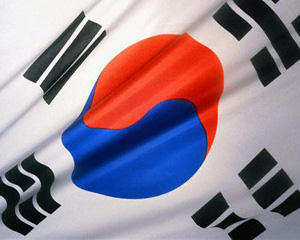South Korea sees 'turning point' in relations with North in 2010
 Seoul, Jan 4 : South Korea plans to push for dialogue with North Korea in 2010, President Lee Myung Bak said Monday after a year of rising tensions amid a North Korean nuclear test, missile launches and threats against its neighbour.
Seoul, Jan 4 : South Korea plans to push for dialogue with North Korea in 2010, President Lee Myung Bak said Monday after a year of rising tensions amid a North Korean nuclear test, missile launches and threats against its neighbour.
Both countries should work to usher in a "turning point" in their relationship, the South Korean leader said in a television address for the New Year.
At the same time, Lee called on South Korea's Stalinist neighbour to return to six-nation talks aimed at ending its nuclear weapons programme.
Those talks have been stalled for more than a year, and Pyongyang unilaterally withdrew from them in April after new UN sanctions were ordered after it conducted a long-range missile test.
Lee said he hoped that denuclearisation could also lead to the development of inter-Korean relations into full cooperation and an improvement in the living conditions of North Korea's impoverished population.
"There should be a forum for permanent discussions between South and North," Lee said.
Lee's address followed a New Year's message from state-controlled North Korean media in which Pyongyang called for an improvement in relations with both South Korea and the US.
"It is the consistent stand of the DPRK to establish a lasting peace system on the Korean Peninsula and make it nuclear-free through dialogue and negotiations," it said, referring to North Korea by the acronym of its official name, the Democratic People's Republic of Korea.
The statement was a marked contrast to its New Year's message a year earlier when North Korea accused Lee's government of being responsible for the deterioration of relations and planning to "re-establish the era of fascist dictatorship".
Relations between the two Koreas dramatically declined after the conservative Lee took office in February 2008, as he took a harder line toward the North that his liberal predecessors.
They soured further in 2009 with North Korea's second nuclear test in May and a series of missile tests. They saw an improvement in August, however, as North Korea made cautious overtures to the South.
Not only are communist North Korea and the capitalist South, which has Asia's fourth-largest economy, on different sides of the ideological divide, but they are also remain technically at war after the 1950-53 Korean War ended with an armistice and not a peace treaty. (dpa)
